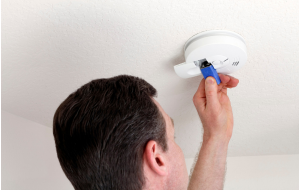
Capital One announced recently that a hacker had accessed the personal information of 100 million individuals in the United States and 6 million in Canada that had applied for credit with the Virginia-based bank. The affected information includes credit scores, linked bank account numbers, Social Security and Social Insurance numbers and additional information that was provided at the time of credit application.
With the full scope of this breach still unfolding, here are some immediate steps you can take to protect your identity:
- Consider placing a credit freeze on your files to make it difficult for someone to open a new account in your name.
- Check your credit reports. Identify what information it contained and look for any unusual activity that could indicate identity theft.
- Pay extra attention to your account and billing statements. Check for unauthorized charges.
- Change all user access credentials. If you use the same passwords for all financial institutions, change them. Watch out for suspicious e-mail, phone and snail-mail scams. Enable text and e-mail alerts and turn on two-factor authentication when possible.
For additional tips and resources, visit www.cyberscout.com/knowledgecenter to learn about the best ways to minimize your risk and help protect your personal information.
© 2019 CyberScout Breach Resources. All rights reserved.

 There is no disputing that the internet has changed our lives in the past 15-20 years. It has altered how we live, shop, and interact with each other. Companies such as Facebook, Amazon, Google, and Apple have become household names. But technology has also brought the expectation that everything should be quick and easy. To meet this demand, some technology companies have tried their hand in the insurance space which can be problematic for the consumer.
There is no disputing that the internet has changed our lives in the past 15-20 years. It has altered how we live, shop, and interact with each other. Companies such as Facebook, Amazon, Google, and Apple have become household names. But technology has also brought the expectation that everything should be quick and easy. To meet this demand, some technology companies have tried their hand in the insurance space which can be problematic for the consumer. Did you know that washing machines are one of the main sources of water damage to homes? Others that top the list include hot water heaters and dishwashers. Fortunately, there are a few easy and inexpensive steps you can take help to prevent these types of losses:
Did you know that washing machines are one of the main sources of water damage to homes? Others that top the list include hot water heaters and dishwashers. Fortunately, there are a few easy and inexpensive steps you can take help to prevent these types of losses: After the holiday season, many like to start the New Year by organizing new gifts and purchases and cleaning out the closets. As each year goes by and your needs continue to change, it’s easy to forget to update your insurance policy in the process. There is no better time than now to make sure both your new, as well as old belongings, are insured properly on your homeowners policy.
After the holiday season, many like to start the New Year by organizing new gifts and purchases and cleaning out the closets. As each year goes by and your needs continue to change, it’s easy to forget to update your insurance policy in the process. There is no better time than now to make sure both your new, as well as old belongings, are insured properly on your homeowners policy. According to the
According to the 
 The great debate in auto insurance; should you purchase comprehensive coverage and/or collision coverage? Collision insurance sounds simple – it’s insurance for collisions. Collision coverage provides coverage for the loss resulting from the striking of another object by a moving vehicle. But what about comprehensive coverage?
The great debate in auto insurance; should you purchase comprehensive coverage and/or collision coverage? Collision insurance sounds simple – it’s insurance for collisions. Collision coverage provides coverage for the loss resulting from the striking of another object by a moving vehicle. But what about comprehensive coverage?  For a number of years, businesses have had the option to purchase cyber liability insurance. This type of coverage protects them against threats like malware attacks, cyber extortion, online fraud, and data breaches. In fact, this coverage continues to be one of the most discussed areas of commercial insurance, as business owners realize no matter the size of their business – or the type of business they operate – all business are vulnerable to cyber attacks.
For a number of years, businesses have had the option to purchase cyber liability insurance. This type of coverage protects them against threats like malware attacks, cyber extortion, online fraud, and data breaches. In fact, this coverage continues to be one of the most discussed areas of commercial insurance, as business owners realize no matter the size of their business – or the type of business they operate – all business are vulnerable to cyber attacks.